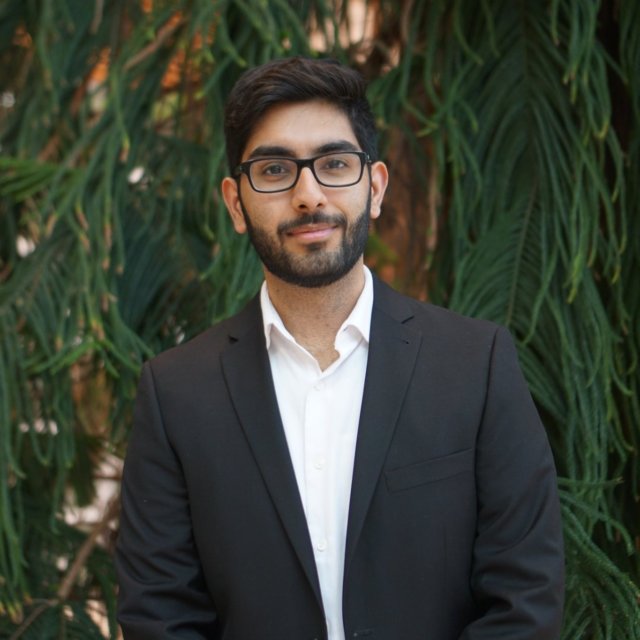Arun Parmar – Récipiendaire Bourse de stagiaire de recherche 2020
Arun Parma is entering his fourth year of Health Sciences at McMaster University.

What does receiving this award mean to you?
I am sincerely grateful and honoured to receive the Brain Tumour Foundation of Canada Studentship. As I have progressed in my academic career, I have realized the importance of placing myself in an environment that helps satisfy my curiosity, peaks my interests, and facilitates my learning. Not only would this studentship help fund a project that I proudly call my own, it will also help me pursue a career in brain tumor research and fulfill my desire to improve our understanding of brain metastasis and the lives of those facing it. In the Singh laboratory, I am lucky to be immersed in a nurturing, team-oriented environment and surrounded by equally passionate peers who support and encourage my personal development.
I would like to thank the Brain Tumour Foundation of Canada, the Nichol Family Fund, and the generosity of patients and donors for making this possible.
How did you learn about the studentship program?
For the past several years, the Singh Laboratory has been actively involved with the Brain Tumour Foundation of Canada to raise awareness and improve the lives of those suffering from brain tumours. We strongly believe in the values and commitment of this foundation and strive to support in as many ways as we can. This year we will be attending the #VirtualBrainTumourWalk and taking part in the 27 Canadians Challenge to #EndBrainTumours. I strongly encourage anyone interested to register and take part in this challenge with us.
What led you to apply?
Being part of the Singh Laboratory for the past year, I have grown to admire and adopt a translational research approach. As a young student, this studentship helps alleviate some of the financial barriers with my project to allow me to focus on answering my research question and get the most out of this experience. With this support, I hope to further develop my knowledge of brain cancer and contribute important research towards informing and developing viable therapy options for patients with aggressive tumours.
What is your project, and why did you choose it?
For my project, I am establishing an organotypic brain slice culture system to explore the behaviour of brain tissue and its interaction with metastatic tumour cells. Pilot experiments have revealed an essential role for a gene called human leukocyte antigen (HLA-G) in promoting cancer stem cell self-renewal and proliferation. Using this model, I aim to validate the role of HLA-G knockout on the survival of cancer stem cells in a three-dimensional system that maintains the structure and architecture of the brain. We believe knocking out HLA-G will attenuate cancer stem cell survival and ultimately their ability to establish brain metastasis (BM), which will provide new therapeutic opportunities of targeting HLA-G in human BM in the clinic.
This project allows me to combine my interests in visualization techniques and cellular biology to better understand the key molecular mechanisms responsible for brain metastasis development.
What do you hope to learn through it?
While I aim to increase my knowledge of brain metastasis, I am equally motivated to develop and improve upon my research and interpersonal skills over these next two terms. I am excited to continue working in a field I am incredibly interested in and with similarly passionate scientists. I know that further development of such skills and my experience in the Singh Laboratory, as provided by this studentship, will not only follow me as I progress in my academic career, but also in my personal life.
Why do you feel it’s important to advance study of brain tumours?
Brain metastases are the most common brain tumour in adults and are ten times more likely to develop than primary tumours. The brain is widely believed to be the most unique aspect of every individual: its multiplex structural design of neural connectivity is what shapes our reality. There are so many questions that have yet to be asked and there is still so much that is currently unknown. While this may be overwhelming to some, to me this is very exciting. Having seen the impact that this devastating diagnosis has on patients and families, I am committed to help make a difference in those affected by brain tumours.
What personal experiences led you to focus on brain tumours?
As someone with a family member affected by brain cancer, I have seen the toll it can have on someone and how complex its onset can be. In first year of university, I joined a McMaster club called Student’s Advancing Brain Cancer Research (SABCR). As part of this club, my goal is to offer students exciting new events and opportunities to learn and get involved with brain cancer research. After inviting members from the Singh Laboratory to come present at a research event, I was blown away by all their research and dedication. I knew an opportunity in this lab would be an ideal foundation for a passionate student such as myself and I am grateful to have received it.